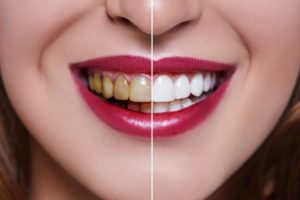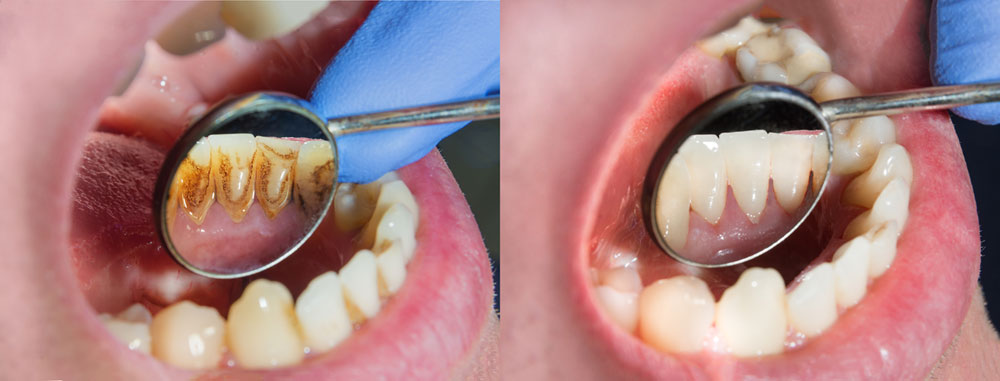
What is a Deep Cleaning Treatment?
A dental deep cleaning, sometimes referred to as gum therapy, is a treatment that cleans between the gums and teeth down to the roots. Like a regular cleaning, the hygienist or dentist will clean the tooth, gum line, and sides of the teeth. A deep cleaning treatment is different for the regular cleaning done on routine 6-month visits. This special cleaning is reserved for people who have significant plaque build-up and gum disease which is caused by a buildup of plaque. Your gum becomes inflamed because of the plaque. If left untreated the inflamed gums will pull away from teeth to form pockets that trap more plaque and bacteria. Bone and tissue around the teeth then have damage which can lead to tooth loss.
When is a Deep Cleaning of Teeth Necessary?
The American Academy of Periodontology recommends dentists offer deep cleanings when X-rays show bone loss and a full-mouth exam reveals one or more gum pockets greater than 4 millimetres deep. People who have substantial plaque build-up may benefit from a thorough cleaning to get them back on track with their oral health.
What Happens During a Deep Cleaning Treatment?
Like a regular cleaning, the hygienist or dentist will clean the tooth, gum line, and sides of the teeth. However, in deep teeth cleaning, they continue to remove tartar buildup down below the gum line to the root of the tooth. A deep cleaning treatment may require more than one visit. Sometimes an ultrasonic instrument or a laser device is used. Finally, the entire affected area will be irrigated with an antibiotic. This process should allow the gums to heal and reattach to the teeth.
What to Expect After a Deep Cleaning Treatment
After a deep cleaning, you may have pain for a day or two and teeth sensitivity for up to a week. Your gums also may be swollen, feel tender, and bleed. To prevent infection, control pain, or help you heal, your dentist may prescribe a pill or mouth rinse. Regular follow up visits will be necessary to gauge the progress. Cigarette smoking contributes to gum disease so it is advised for you to quit smoking if you are a smoker.
How to Prevent Periodontal Disease…
- Brush for two to three minutes, at least twice a day, with fluoridated toothpaste.
- Floss daily to remove plaque from places your toothbrush can’t reach.
- Although not a substitute for brushing and flossing, a mouth rinse can reduce plaque up to 20 percent.
- Eat a healthy diet
- Avoid cigarettes and smokeless tobacco
- Schedule 6-month visits with your dentist
Contact us (859) 586-7900 for more information or to make an appointment!
—
About Torbeck Dental
Torbeck Dental treats every patient with dignity and excellent care. We are highly-trained dental professionals with exceptionally friendly and helpful service. We understand that for many, visiting a dentist can be a stressful experience so our comfortable surroundings and compassionate staff will ease any fears you may have. We are here to help you achieve your happiest and healthiest smile! Our dental team are a group experienced professionals using the latest treatments. Our team has the professional experience to realize that there is no such thing as one-size-fits-all treatment, so we never use a one-size-fits-all approach to your dental plan. We provide quality and personalized oral health care while keeping your individuality in mind. Our goal is to improve and maintain your oral health so you can smile with confidence!

